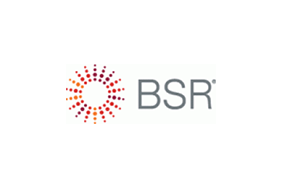How Sustainability Teams Can Meet the Moment
Published 04-09-20
Submitted by BSR

By: Laura Gitman, Chief Operating Officer, BSR
It’s still too early to know the full human and economic impact of the COVID-19 pandemic, and our attention today is rightfully on caring for the sick, protecting the vulnerable, and preventing the disease’s continued spread.
The global business community is responding to the pandemic in real time, providing support for their staff, their suppliers, their contractors, their customers, and their communities. As an example, Just Capital is tracking responses from U.S. businesses.
But eventually, we will need to begin to ponder the question: how will we rebuild once the crisis has passed? And how can we rebuild in a way that enables our systems to be more resilient, and just, in the future? We have learned not only that change is necessary, but that it is possible, and this will have an impact on every aspect of society: from global supply chains to community health programs to the very nature of work, policy, education, and everything in between.
The questions that I’m getting from BSR member companies today fall in between what’s the best immediate response and how do we drive systemic change. What do I do right now? How do I maintain my company’s commitment to our sustainability priorities? Will I lose executive attention or budget? How do I maintain momentum in such a volatile environment?
There is certainly no one-size-fits-all answer to these questions. That said, I have found that times of crises don’t change as much as they reveal the state of sustainability inside a business. For companies in which sustainability was already sidelined or was created mainly for public relations purposes without much real business integration, we can expect to see those commitments waver.
But for companies which are focused on material sustainability issues—those issues are only going to be more relevant moving forward. This is the time to pull out that materiality matrix—remember the specific ways that certain issues directly impact your business success and focus your efforts there. If you have integrated sustainability well, the case for a resilient strategy is being made for you. Today’s crisis is the pandemic, but tomorrow’s may be due to climate change, and sustainability teams can drive that connection and the strategies needed to prepare companies to succeed.
Stakeholder expectations for businesses don’t disappear when things get hard—and stakeholders will remember which companies step up in times of crises and which don’t.
Crises also breed innovation and emphasize the need for collaboration. Sustainability teams benefit from both. So, if you were struggling to get your company to pursue an industry solution or to completely change how a certain process is done, now is your time. Sustainability professionals will be leading experts inside their businesses to help navigate unexpected challenges and to drive the important changes needed in our global systems.
Our 2018 report Redefining Sustainable Business: Management for a Rapidly Changing World stated that the sustainability function should reimagine its role in four key ways that seem even more true today.
Value Creators: Identify opportunities to create business value and play a catalytic role in generating such opportunities.
Change Agents: Enhance and leverage organizational change and influence skills
Coalition Builders: Seek traction in the areas where the company has the most advanced and innovative thinking and adopt a more structured way of thinking about sustainability’s place in the organization.
Futurists: Identify long-term sustainability factors that drive risk and generate value; engage with the uncertainty, complexity, and volatility of how consumers, policy makers, and other key stakeholders respond to these long-term sustainability factors.
Sustainability functions would be well-served to think about these four roles and to more formally and informally embed them inside their organizational structures.
Finally, stakeholder expectations for businesses don’t disappear when things get hard—and stakeholders will remember which companies step up in times of crises and which don’t.
And the parallels to a previous crisis are also becoming all too clear. I still have investors or NGOs bring up examples of which banks handled the 2008 financial crisis in a way that reinforced their ethics and integrity and which did not. We’ve already seen NGOs call for companies to be responsible for the impacts in their extended value chains, such as for displaced garment workers. Employees at Amazon and GE have already walked out, either to protest how employees are treated or to demand that their company become part of the solution by making ventilators.
The year 2020 began with increasing expectations from investors about sustainability and long-term value, and in a time of general market volatility, it will be even more obvious to investors, customers, and employees which companies are well-positioned for the long-term. This is the role of the sustainability team, and this is your moment.
Originally appeared on BSR.

BSR
BSR
Since 1992, Business for Social Responsibility (BSR) has been providing socially responsible business solutions to many of the world's leading corporations. Headquartered in San Francisco, with offices in Europe and China, BSR is a nonprofit business association that serves its 250 member companies and other Global 1000 enterprises. Through advisory services, convenings and research, BSR works with corporations and concerned stakeholders of all types to create a more just and sustainable global economy. For more information, visit www.bsr.org.
More from BSR

